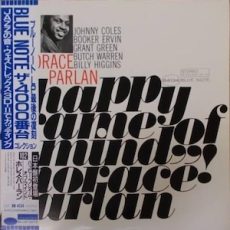
Requisites
Happy Frame of Mind ~ Horace Parlan | By Eddie Carter
Horace Parlan has always been one of my favorite pianists, and this morning’s record from the library is a 1963 recording session that remained shelved until 1976. Happy Frame of Mind (Blue Note BST 84134) is a sextet date that was initially released as a two-record set by Booker Ervin. It finally hit the stores a decade later with its original cover and catalog number. The supporting cast is a stellar one: Johnny Coles on trumpet, Booker Ervin on tenor sax, Grant Green on guitar, Butch Warren on bass, and Billy Higgins on drums. My copy is the 1991 Toshiba EMI Japanese Stereo reissue sharing the original catalog number.
Side One opens with Home Is Africa by Ronnie Boykins. Butch and Billy get things started ahead of the ensemble’s haunting melody. Johnny is up first with a relaxing reading; then Booker gives a gorgeous solo. Grant makes an effective contribution next. Horace gives the song’s most inventive improvisation before the sextet’s closing chorus ends as it begins. A Tune For Richard by Booker Ervin gets busy with Billy’s lively introduction to the ensemble’s brisk melody. Johnny leads the charge, then Booker takes flight next. Grant delivers the third message effectively, and Horace ends with a spirited interpretation preceding the theme’s restatement and close.
Back From The Gig by Horace Parlan is the pianist’s reference to returning home from a particularly difficult gig, and the sextet begins with an easygoing melody. Horace’s opening solo flows with feeling, then Grant builds a perfect melodic line in the following reading. Booker follows with a statement that’s warm and heartfelt, and Butch takes over for a tender finale leading back to the climax. Dexi by Johnny Coles begins Side Two at a brisk clip with a quick melody into Johnny’s opening solo that sets the table. Booker is given considerable space for an impressive statement next. Horace follows with a soulful interpretation, and Grant takes a quick turn, preceding the quick reprise and fadeout.
Kucheza Blues by Randy Weston maintains an upbeat pace with the trio’s introduction to the front line’s jaunty theme. Horace leads the way with a refreshing solo. Booker follows, fueling the second statement with enthusiastic choruses. Johnny sinks his teeth into the third reading, and Butch walks swiftly toward the closing chorus and fade out. Horace’s Happy Frame of Mind is a happy rocker that the sextet has fun in the melody. Grant takes the lead and beautifully executes the first solo. Horace follows with a thoroughly enjoyable reading. Booker improvises freely in the third spot; then Johnny shares the finale with Billy before the sextet returns to take it out.
Alfred Lion produced the initial session, and Rudy Van Gelder was the recording engineer. The reissue’s sound quality is superb, with a vivid soundstage that brings the musicians to your listening room with excellent fidelity. Happy Frame of Mind is an overlooked jewel in Horace Parlan’s discography. If you’re a fan of Horace Parlan and don’t own the two-record set, Back From The Gig, I invite you to seek out Happy Frame of Mind on your next record shopping trip. It’s a wonderful album with a stellar supporting cast that I hope more jazz fans will discover!
~ Back From The Gig (The Blue Note Reissue Series BN-LA488-H2) – Source: Discogs.com © 2024 by Edward Thomas CarterMore Posts: choice,classic,collectible,collector,history,instrumental,jazz,music,piano
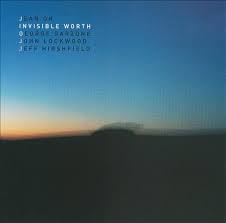
Daily Dose Of Jazz…
Jean Oh was born in Seoul, Korea on June 11, 1978 and began playing the guitar at the age of 13. He began studying music formally at Seoul Jazz Academy, and soon began playing gigs. After several years of playing with many different bands around town, he realized he needed different experiences which led him to Paris, France.
In Paris he studied jazz with Misja Fitzerald Michel, Sylvain Beof, Bernard Maury, Joe Malcolm, Emil Spanyl and Frederic Favarel. He performed in various clubs and after graduating from the music conservatory Jean moved to New York City to attend New York University where he obtained a master’s degree. During his two years at NYU, he studied with Ralph Alessi, George Garzone, John Scofield, and Gil Goldstein. He also attended the School of Improvisation Music, studying with Steve Coleman, Mark Helias, Uri Caine, David Binney, and Bily Hart.
Working his way into the New York Jazz scene he played different gigs that became his springboard to his professional career. He has played on several commercially released recordings and toured throughout the United States, Canada, Japan, South America, Philippine, Russia and has shared stages with George Garzone, John Lockwood, Jeff Hirshfield, Billy Drummond, Ralph Alessi, Ron McClure, Mike Richmond.
Guitarist Jean Oh released his debut album Invisible Worth featuring George Garzone, John Lockwood, and Jeff Hirshfield. He is pushing himself to have his voice defined in music, both as a sideman and as a band leader.
More Posts: bandleader,guitar,history,instrumental,jazz,music
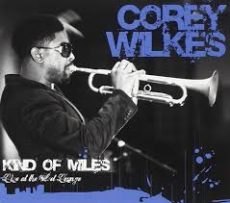
Daily Dose Of Jazz…
Corey Wilkes was born June 3, 1979 in Chicago, Illinois. He began his musical journey at a young age and received a full scholarship to Berklee College of Music in Boston, Massachusetts. After graduating, he became an in-demand touring and recording artist, collaborating with the Art Ensemble of Chicago, Roy Hargrove, Kahil El Zabar, James Carter, Tedeschi Trucks Band, Nicole Mitchell, Dr. Lonnie Smith, Makaya McCraven and many more.
Wilkes’ talents as a composer won him an Outstanding Achievement for Documentary Program ~ Historical Emmy Award for his film score for the Ida B Wells documentary. He is also a Grammy-nominated musician for his work as a member of the Ethnic Heritage Ensemble. His electro-acoustic soulmusic blends jazz, electronic music, and soulful vocals in his solo projects.
Beyond music Corey has also worked with visual artists such as Theaster Gates, Nick Cave, Lucy Slivinski and Rashid Johnson, creating multi-disciplinary performances that blend music, art, and culture. He has also worked with renowned House Music DJ’s such as Osunlade, Ron Trent, Jaimie Principle, and Vick Lavender, fusing jazz with electronic and house music.
Trumpeter, producer, composer and actor Corey Wilkes continues to captivate audiences around the world.
More Posts: bandleader,composer,history,instrumental,jazz,music,producer,trumpet
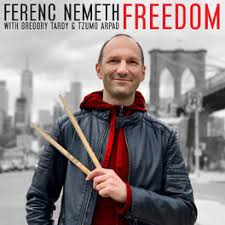
Daily Dose Of Jazz…
Ferenc Nemeth was born on May 20, 1976 in Keszthely, Hungary and at 14 left home to study classical percussion at the Richter János Conservatory in Győr, Hungary. Following this he attended the Franz Liszt Academy of Music and then received a scholarship to the Berklee College of Music in Boston, Massachusetts. He later enrolled in the graduate program at the New England Conservatory. In 2001 he became the first Hungarian to be accepted into the Thelonious Monk Institute of Jazz, studying there until 2003.
He has played with Herbie Hancock, Wayne Shorter, Christian McBride, John Patitucci, Terence Blanchard, John Abercrombie, Joshua Redman, Dave Samuels, Mark Turner, Ron McClure, Chris Cheek, Aaron Goldberg, Eli Degibri, and Illayaraja.
He is a founding member of Gilfema with Lionel Loueke and Massimo Biolcati. Since the group’s debut album as a leader he has released six more albums, and his sophomore release Night Songs being nominated for the 7th Annual Independent Music Awards for Jazz Album of the Year.
Based in New York City, drummer and composer Ferenc Nemeth, who has also recorded as a sideman, continues to perform, record and compose.
More Posts: bandleader,composer,drums,history,instrumental,jazz,music
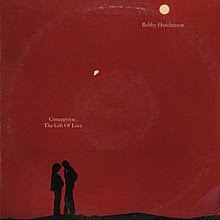
Requisites
CONCEPTION: THE GIFT OF LOVE | BOBBY HUTCHERSON
Conception: The Gift of Love is a post bop album by vibraphonist Bobby Hutcherson. The album was recorded over a two day period on March 15 & 16, 1979 at A&R Recording Studios in New York City and at the Van Gelder Studio in Englewood Cliffs, New Jersey. The 37 minute, 52 second album was produced and arranged by Cedar Walton and released on the Columbia Records label.
Vibraphonist Bobby Hutcherson’s quintet includes pianist George Cables, bassist James Leary, drummer Eddie Marshall and percussionists Bill Summers and Kenneth Nash. He brings a stellar horn section to the session with flutist Hubert Laws, trumpeters Jon Faddis, Danny Moore, Anthony Tooley, Joseph B. Wilder, tenor trombonists Robert Alexander, John Gale, Urbie Green, bassoon and bass clarinetist Romeo Pinque, alto saxophone Lenny Hambro, and tenor saxophonists Daniel Trimboli and Frank Wess.
The seven originals were composed by the band members. Side One opens with the leader’s composition No Siree Bob (7:00), followed by Clockwise by Cedar Walton (6:39), and closes with James Leary’s Remember to Smile (5:38). Side Two commences with Dark Side, Light Side by George Cables (4:06), then another Leary composition Hold My Hand (3:58), Eddie Marshall’s Dreamin’ (6:07) and closes with a second Cable composition titled Quiet Fire (4:24).
Though some critics have claimed this album to be one of his lesser releases with nothing memorable occuring, there are some who state it is a masterpiece of lyrical, straight ahead jazz that is melodically beautiful. I found it to be an enjoyable escape and leave it to you to discover for yourself.
More Posts: choice,classic,collectible,collector,history,instrumental,jazz,music,vibraphone



